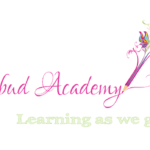As I was discussing marketing and promotional opportunity types with my authors yesterday, one of the comments that came up (and frequently comes up when I’m speaking with authors) is when to market and where. In my experience, the answer to that is almost always now and wherever you happen to be.
Then and Now
Marketing isn’t what it once was. With all the different avenues of communication we travel daily, less is more, and authenticity trumps all. It’s not about selling your product as much as it is about connecting with others and giving them a reason to support you–whether that’s because your product is something they can find a personal benefit from, or whether that’s because they genuinely just want to see you succeed and are willing to do whatever is in their means to help you do so.
Given this emotional connection standpoint, authors, in particular, should be able to find comfort and excel in this. After all, the best voice of any book is the one that instantly connects and synchronizes with the reader’s mindset. Still, authors seem inherently afraid of marketing; again, though, I think a lot of that fear stems from what we used to think in terms of marketing: sell, sell, sell–right here, right now!
Few people truly feel good standing up on a podium and directly sales-pitching their book. So, don’t focus on that part of it. Buyers don’t want to be told to spend their money, they want a reason to see why it’s okay to spend their money. Purchase guilt is a real thing, and no one likes it, so don’t ask them to buy just to buy out of impulse; let them see what you have to offer that makes investing in you (you are a business, after all) a do-good, feel-good decision. A sound purchasing decision is less likely to end in purchase guilt and reader let-down (translate: sour-tasting reviews).
You Do You
As an author, I believe you have a particular advantage in marketing because as you develop your marketing plan, you can flesh out the story around it… give it characters and setting and play with what and who and why and where. Realize your marketing isn’t a garage sale where you just stack your books up and watch people walk buy, crossing your fingers, eyes, and toes that you put the right price sticker on to catch their eye and that they are in the mood for a book that day and that they think your book just might fit that mood. Write your story. See how it happens. Walk up to the person at the table, chat with them, get to know them, let them get to know you (to your particular comfort level), and then move on. Focus on the personal connection, not the sale. Maybe the book wasn’t for them, but maybe they decided to support you anyway. Or, maybe, they walked away, but you made enough of a connection that when someone asks them if they’ve read anything good lately, they’ll look back and say, “You know, I haven’t, but I was just looking at a book the other day called [Your Title] by a local author. (S)he was really nice, too. Book looked good.” Then maybe that other person will say, “Oh. Neat. Let me write that down. I’ll have to check it out.” Then maybe she goes online and buys the book. Maybe she goes to the bookstore or the library and requests the book. Maybe she blogs. Maybe she’s a book blog reviewer. Or, maybe she owns a small book shop, and she reads your book and loves it and then decides to put it on a “local authors” shelf. Maybe a lot of things…
Or maybe you decide not to market until after the book is released, because to you, marketing is direct sales. Marketing isn’t about connections.
Maybe you forgot the most important thing: you are an author. You write stories. Write your stories, connect with people–even if you’re just making them up. Use your storytelling skills to dictate a marketing plan. Watch it unfold, and then adjust.
Also, you don’t need to be everywhere (and certainly not at once), but where you are? Be present.
So, the biggest marketing don’t? Convincing yourself not to.
Keep Tending
Sometimes it truly is hard to see the forest for the trees, especially when we get so stuck analyzing whether one branch seems weaker than it should be. Constructive assessment is good, but don’t let yourself get stuck in analysis paralysis and walk out of the forest to go see what others’ trees look like, abandoning what’s already started growing around you. In other words, don’t prune a sprout just because it doesn’t yet look like the full grown plant.







 Jessica Schmeidler is a professional editor, ghostwriter, literary agent, and homeschooling mompreneur. While still in college, she began working from home, starting her own business soon thereafter. In 2015 she founded Golden Wheat Literary.
If she's not inside reading, writing, or editing, she's outside with her daughter, riding her horses, annoying the chickens, or playing in the garden.
Jessica Schmeidler is a professional editor, ghostwriter, literary agent, and homeschooling mompreneur. While still in college, she began working from home, starting her own business soon thereafter. In 2015 she founded Golden Wheat Literary.
If she's not inside reading, writing, or editing, she's outside with her daughter, riding her horses, annoying the chickens, or playing in the garden. 






Couldn’t agree with you more. I once took a sales class because I wanted to learn how to better sell research ideas. The instructor told us to never bring up sales until after we made a personal connect. He said to walk into a meeting and scan for something personal (kids photos, indications of hobbies, distinctive clothing, etc) and use it to start a conversation about them. Only after a personal connection is made can you begin to talk about anything sales related.
Robert August recently posted..Book Review of Mary’s Monster
Yes! I like that professor.
So helpful, Jessica, as I look forward to my book launch in Spring of 2019. Thanks!